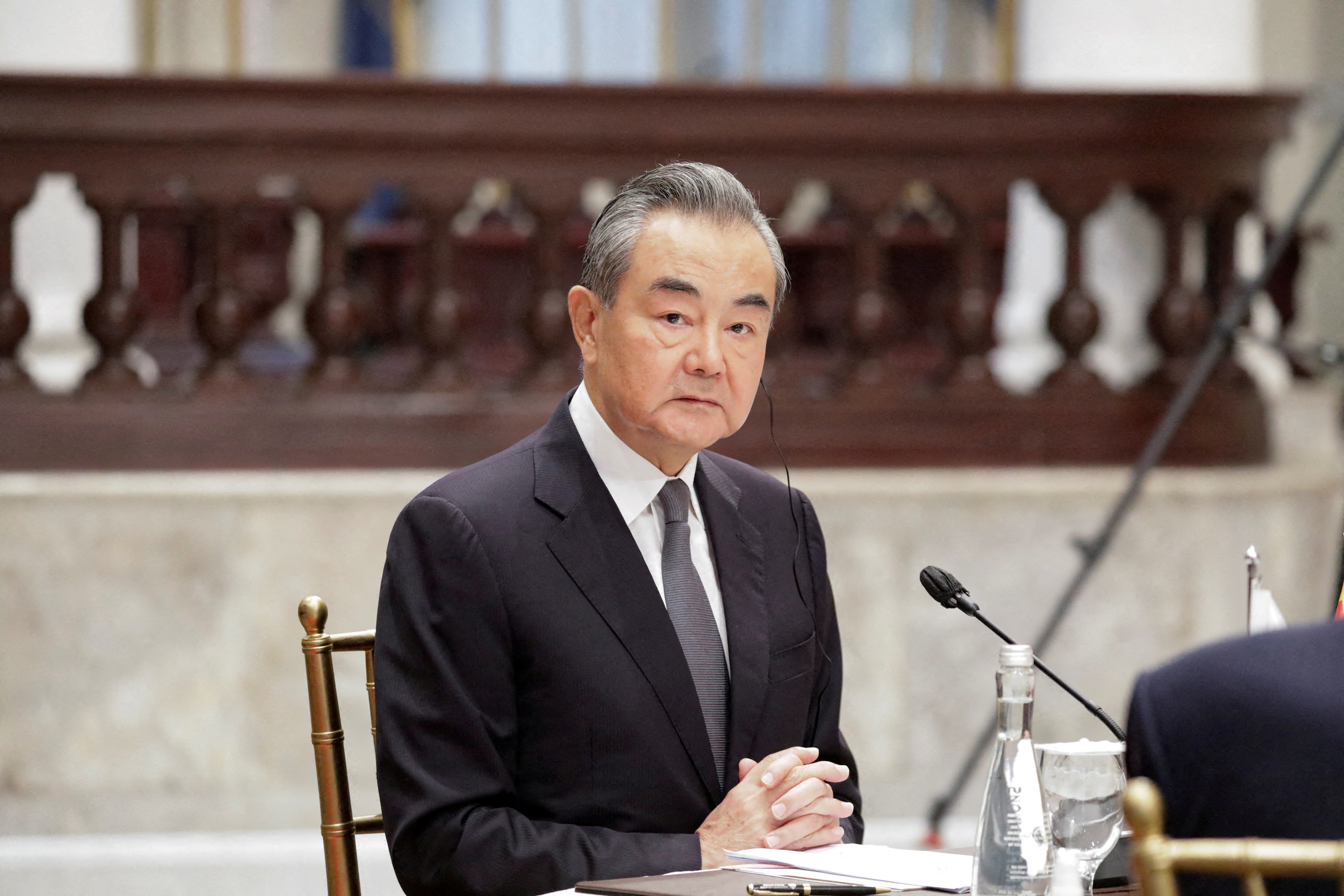North Korea Hosts Chinese and Russian Delegations for 70th Anniversary of Korean War Armistice
After years of isolation due to the COVID-19 pandemic, North Korea has invited senior Chinese and Russian delegations to commemorate the 70th anniversary of the Korean War and the struggle against the United States and its allies. The visiting dignitaries, including Russian Defence Minister Sergei Shoigu and Chinese Communist Party Politburo member Li Hongzhong, are expected to witness a massive military parade showcasing North Korea’s latest weaponry, which may include nuclear-tipped missiles banned by the United Nations Security Council.
These visits mark the first known foreign delegations to visit North Korea since the start of the pandemic. Pyongyang has been seeking to deepen its ties with Beijing and Moscow, finding common ground in their rivalries with Washington and the West. The holiday on Thursday, which celebrates what North Korea sees as a victory over U.S.-led allied forces in the 1950-1953 Korean War, provides an opportunity for Pyongyang to highlight the Cold War era when North Korean troops fought with Chinese and Russian support.
Analysts suggest that North Korea’s invitation to both countries indicates its intention to stand up against the West while maintaining balanced ties with China and Russia. However, it remains uncertain whether these visits signal a broader easing of North Korea’s bans on international travel. There is a possibility that the visits could provide an opening for U.S. officials to negotiate the release of U.S. soldier Travis King, who recently crossed into North Korea. Nevertheless, it is unlikely that Pyongyang will seek engagement with Washington in the near future, as it may consider itself in a full-scale New Cold War with the United States.
The military parade in Pyongyang is expected to involve as many as 15,000 personnel and may feature new designs of nuclear-capable weapons. Satellite imagery has shown participants practicing for the event, including large formations displaying the number ”70″ and other slogans. The parade holds significance as it showcases North Korea’s military capabilities and serves as a reminder of its ongoing conflict with the U.S.-led alliance.
North Korean leader Kim Jong Un has already kicked off the commemorations by visiting a cemetery for Chinese soldiers who fought in the war. He also visited the Fatherland Liberation War Martyrs Cemetery, where he praised the soldiers for their role in “inflicting defeat” on U.S. imperialism. Amid international sanctions on North Korea’s missile and nuclear programs, China has become its largest trading partner. Russia and China have rejected recent attempts by the United States and some European countries to impose new sanctions on North Korea, instead advocating for the easing of existing measures for humanitarian purposes and to encourage Pyongyang to return to denuclearization talks.
The delegations from China and Russia could potentially signal the resumption of long-stalled diplomatic visits. If North Korea also sends a high-level delegation to China for the upcoming Hangzhou Asian Games, it would indicate the resumption of high-level ”shuttle diplomacy” between the two countries since the COVID-19 pandemic began.
The events surrounding the 70th anniversary of the Korean War armistice highlight North Korea’s efforts to strengthen its alliances with China and Russia and assert its position against the United States and its allies. The military parade serves as a display of North Korea’s military might, potentially including its nuclear capabilities, and reinforces its ongoing conflict with the U.S.-led alliance. The visits by the Chinese and Russian delegations may pave the way for future diplomatic engagements and indicate a shift in North Korea’s foreign policy approach.

What does the participation of Chinese and Russian delegations in the anniversary commemorations suggest about their commitment to North Korea and their stance on the nuclear issue
Ndicating that North Korea is putting great emphasis on this commemoration. The display of advanced weaponry, especially any nuclear-tipped missiles, will likely send a strong message to the international community, particularly the United States.
The timing of these visits is significant as tensions between North Korea and the United States have been escalating in recent months. This includes North Korea’s continuous missile tests and its refusal to engage in denuclearization talks. By welcoming Chinese and Russian delegations, North Korea is not only showcasing its military might but also seeking support from its allies in its ongoing standoff with the United States.
China and Russia have a history of providing diplomatic and economic support to North Korea, even in the face of international sanctions. Both countries have expressed their desire for stability on the Korean Peninsula and have called for a peaceful resolution to the nuclear issue. Their participation in the anniversary commemorations further solidifies their commitment to North Korea.
It is worth noting that while these visits may suggest a slight thaw in North Korea’s isolation, it does not necessarily indicate a shift in its overall foreign policy. North Korea has always been selective in engaging with the international community and has often used such events to assert its sovereignty and defiance against perceived external threats.
As the anniversary celebrations unfold, it will be crucial to monitor the reactions from the United States and other countries involved in the Korean War. Any provocative actions or statements from North Korea could further exacerbate tensions in the region, potentially leading to a new cycle of escalation.
Overall, the visits of senior Chinese and Russian delegations to North Korea for the 70th anniversary of the Korean War armistice signal North Korea’s intent to strengthen its ties with its allies while asserting its position against the United States. The military parade and display of advanced weaponry will undoubtedly attract global attention, and the international community will be closely watching for any indications of North Korea’s future intentions and actions.


It’s interesting to see the Chinese and Russian delegations attending North Korea’s 70th anniversary commemorations. This event could potentially contribute to the evolving geopolitical landscape in the region, prompting speculation about the intentions and alliances of these countries.